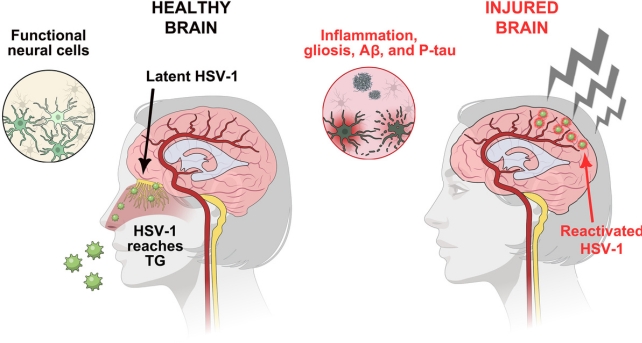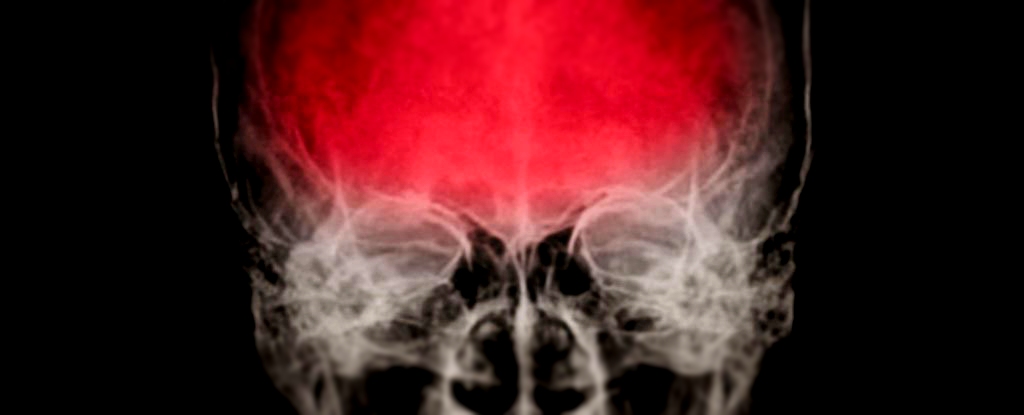A hard blow to the head can also deal an insidious blow to the human immune system, a one-two punch that can awaken dormant viruses in the body and cause neurodegenerative diseases.
Research using stem cell “mini brains” herpes simplex virus 1 (HSV-1) infection is already “stopped” by the immune system, which can throw off its grip when brain tissue is damaged.
“We asked ourselves, what would happen if we exposed a brain tissue model to a physical disruption similar to a concussion?” say Dana Cairns, a biomedical engineer at Tufts University in the US.
“Will HSV-1 wake up and begin the process of neurodegeneration?”
The answer seems to be “yes”. Although these tiny brains are not perfect representations of real brains, they are a good model of how brain tissue responds to repeated light blows to a “closed head.”
A week after the injury, researchers noticed the formation of protein clumps and tangles within the brain tissue, a hallmark of neurodegenerative diseases such as Alzheimer’s disease.
Some brain cells also showed damage associated with neuroinflammation, with a significant increase in proinflammatory immune cells.
Traumatic brain injury, including chronic traumatic encephalopathy (CTE), has recently emerged as a major risk factor for neurodegenerative diseases, with preliminary research suggesting that: chronic inflammation Even mild head injuries can contribute to cumulative damage.
It is still unclear how that process will proceed, but other recent research It turns out that viruses may play a unique role. HSV-1 is a major risk factor for neurodegeneration and can double the likelihood of developing dementia.
In a 2008 study, researchers discovered The HSV-1 gene was present in 90 percent of protein plaques in the postmortem brains of Alzheimer’s patients. Most of this viral DNA was found within the plaques.
To further investigate whether brain injury can reactivate HSV-1 infection, researchers from Tufts University and the University of Oxford turned to isolated brain slices. In response to physical injury, people with latent HSV-1 infection had a markedly reduced secretion of the excitatory neurotransmitter glutamate.
Small brains aged for eight weeks fared better post-injury than those aged for four weeks, indicating that head trauma may have a more severe impact on the developing young brain. are.

“Our results show that traumatic brain injury causes reactivation of latent HSV-1 in our 3D brain model…and that when the injury is repeated, that injury “We found that it became much larger than after ,” the research team said. conclusion.
Whether HSV-1 is awakened by physical damage or by another pathogen, Cairns and colleagues suspect that this very common virus may be contributing to the development of dementia. are.
they are claim Future research will “investigate methods that may reduce or prevent the damage caused by head injury, such as post-injury anti-inflammatory drugs and antiviral treatments, thereby reducing HSV-1 reactivation in the brain.” There is a need to “prevent Alzheimer’s disease and reduce the subsequent onset of Alzheimer’s disease.”
This research science signaling.
